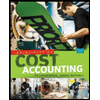Preble Company manufactures one product. Its variable manufacturing overhead is applied to production based on direct labor-hours and its standard cost card per unit is as follows: Direct material: 5 pounds at $8.00 per pound Direct labor: 2 hours at $14 per hour Variable overhead: 2 hours at $5 per hour Total standard variable cost per unit The company also established the following cost formulas for its selling expenses: Variable Cost per Unit Sold Advertising Sales salaries and commissions Shipping expenses $40.00 28.00 10.00 $ 78.00 Fixed Cost per Month $ 200,000 $ 100,000 $12.00 $ 3.00 The planning budget for March was based on producing and selling 25,000 units. However, during March the company actually produced and sold 30,000 units and incurred the following costs: a. Purchased 160,000 pounds of raw materials at a cost of $7.50 per pound. All of this material was used in production. b. Direct-laborers worked 55,000 hours at a rate of $15.00 per hour. Materials quantity variance c. Total variable manufacturing overhead for the month was $280,500. d. Total advertising, sales salaries and commissions, and shipping expenses were $210,000, $455,000, and $115,000, respectively. 2. What is the materials quantity variance for March? (Indicate the effect of each variance by selecting "F" for favorable, "U" for unfavorable, and "None" for no effect (i.e., zero variance.). Input the amount as a positive value.)
Preble Company manufactures one product. Its variable manufacturing overhead is applied to production based on direct labor-hours and its standard cost card per unit is as follows: Direct material: 5 pounds at $8.00 per pound Direct labor: 2 hours at $14 per hour Variable overhead: 2 hours at $5 per hour Total standard variable cost per unit The company also established the following cost formulas for its selling expenses: Variable Cost per Unit Sold Advertising Sales salaries and commissions Shipping expenses $40.00 28.00 10.00 $ 78.00 Fixed Cost per Month $ 200,000 $ 100,000 $12.00 $ 3.00 The planning budget for March was based on producing and selling 25,000 units. However, during March the company actually produced and sold 30,000 units and incurred the following costs: a. Purchased 160,000 pounds of raw materials at a cost of $7.50 per pound. All of this material was used in production. b. Direct-laborers worked 55,000 hours at a rate of $15.00 per hour. Materials quantity variance c. Total variable manufacturing overhead for the month was $280,500. d. Total advertising, sales salaries and commissions, and shipping expenses were $210,000, $455,000, and $115,000, respectively. 2. What is the materials quantity variance for March? (Indicate the effect of each variance by selecting "F" for favorable, "U" for unfavorable, and "None" for no effect (i.e., zero variance.). Input the amount as a positive value.)
Chapter5: Process Costing
Section: Chapter Questions
Problem 2PB: The following product costs are available for Kellee Company on the production of eyeglass frames:...
Related questions
Concept explainers
Variance Analysis
In layman's terms, variance analysis is an analysis of a difference between planned and actual behavior. Variance analysis is mainly used by the companies to maintain a control over a business. After analyzing differences, companies find the reasons for the variance so that the necessary steps should be taken to correct that variance.
Standard Costing
The standard cost system is the expected cost per unit product manufactured and it helps in estimating the deviations and controlling them as well as fixing the selling price of the product. For example, it helps to plan the cost for the coming year on the various expenses.
Topic Video
Question

Transcribed Image Text:Preble Company manufactures one product. Its variable manufacturing overhead is applied to production based on direct
labor-hours and its standard cost card per unit is as follows:
Direct material: 5 pounds at $8.00 per pound
Direct labor: 2 hours at $14 per hour
Variable overhead: 2 hours at $5 per hour
Total standard variable cost per unit
The company also established the following cost formulas for its selling expenses:
Variable
Cost per
Unit Sold
Advertising
Sales salaries and commissions
Shipping expenses
$ 40.00
28.00
10.00
$78.00
Fixed Cost
per Month
$ 200,000
$ 100,000
$12.00
$ 3.00
The planning budget for March was based on producing and selling 25,000 units. However, during March the company
actually produced and sold 30,000 units and incurred the following costs:
a. Purchased 160,000 pounds of raw materials at a cost of $7.50 per pound. All of this material was used in production.
b. Direct-laborers worked 55,000 hours at a rate of $15.00 per hour.
Materials quantity variance
c. Total variable manufacturing overhead for the month was $280,500.
d. Total advertising, sales salaries and commissions, and shipping expenses were $210,000, $455,000, and $115,000,
respectively.
2. What is the materials quantity variance for March? (Indicate the effect of each variance by selecting "F" for favorable, "U" for
unfavorable, and "None" for no effect (i.e., zero variance.). Input the amount as a positive value.)
Expert Solution
This question has been solved!
Explore an expertly crafted, step-by-step solution for a thorough understanding of key concepts.
This is a popular solution!
Trending now
This is a popular solution!
Step by step
Solved in 4 steps

Knowledge Booster
Learn more about
Need a deep-dive on the concept behind this application? Look no further. Learn more about this topic, accounting and related others by exploring similar questions and additional content below.Recommended textbooks for you

Principles of Accounting Volume 2
Accounting
ISBN:
9781947172609
Author:
OpenStax
Publisher:
OpenStax College

Principles of Cost Accounting
Accounting
ISBN:
9781305087408
Author:
Edward J. Vanderbeck, Maria R. Mitchell
Publisher:
Cengage Learning

Principles of Accounting Volume 2
Accounting
ISBN:
9781947172609
Author:
OpenStax
Publisher:
OpenStax College

Principles of Cost Accounting
Accounting
ISBN:
9781305087408
Author:
Edward J. Vanderbeck, Maria R. Mitchell
Publisher:
Cengage Learning